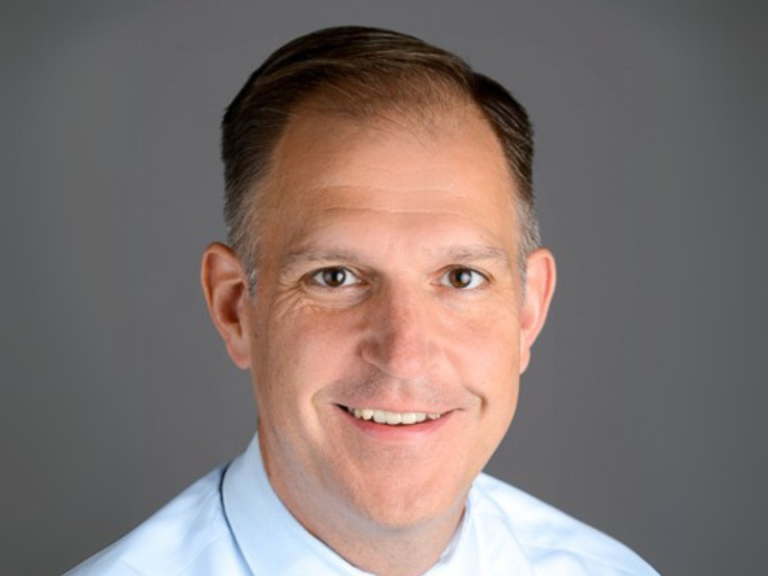So far in 2024, 516 anti-queer bills have been introduced in state legislatures across the country, part of a coordinated effort where bills getting traction in one state are soon parroted by legislators in others.
In a similar vein, over half the states in the country have introduced anti-DEI bills this year, with nine passing such legislation already and others defunding existing DEI services. This wave of legislative incursions is changing our social and health landscape faster than many of us realize.
As someone who has recently traveled to many affected states and interviewed people in others, I’ve been fascinated by the question of how this affects the journey of LGBTQI+ people and cancer. Even as an expert in trans health, I admit, the magnitude of this impact was bigger than I had guessed.
It is more important now than ever to assure LGBTQI+ patients with cancer we are welcome—not just on Pride month but at every visit.
I’ve talked with trans women who can’t get mammograms because their state considers them gender-affirming care. I’ve talked with many who are taking herculean steps to get welcoming care, including one family who’s flying their teenager 1,700 miles to do so. I’ve talked with a family where the immigrant mother spiraled after her cancer returned, because her support team had to move out of state to get welcoming care.
I’ve talked with a young person who had to wait a year and a half to get needed hormones after cancer-induced menopause, because endocrinologists were flooded with trans people due to new legislation.
I’ve talked with providers who were driven out of their state and people who only know of two remaining welcoming providers in their whole state. I’ve listened to the stories of how providers are being directly threatened, and watched as providers trying to hold onto their commitment to treat all people refuse to speak even off the record about it for fear their state will shut them down.
I’ve listened as researchers running an NCI-funded cancer study took steps to make sure their own institutions didn’t see any evidence of this work, again, out of fear it would be shut down. I listened as LGBTQI+ community centers struggled to stay open after legislative sights were set on them and nearby academic LGBTQI+ offices were shut down.
I’ve heard from an NCI cancer center director how all the state funding for diversity and outreach was cut, leaving them scrambling to fulfill the NCI mandates on serving their whole community. I talked with many people who had no clue how they would find welcoming care in the face of a cancer diagnosis, including the refrain: “I definitely wouldn’t go to anyone in this state.”
The theme among the conversations was that while some may think the legislation is aimed at a narrow swath of the population, perhaps teens needing gender affirming care, the reality is much larger.
The wave of legislative attacks has fueled a broad wave of well-earned medical mistrust.
The wave of legislative attacks has fueled a broad wave of well-earned medical mistrust.
Add this to the other news that, according to the newest U.S. Transgender Survey, 24% of trans or gender nonconforming people avoided seeing a provider in the last year due to fear of mistreatment, and of those that did, 48% reported at least one negative experience due to being trans.
And let’s not be complacent that this only affects a very tiny group of people: best available estimates from Gallup and GLSEN indicate over one in 10 youth may currently be identifying as gender nonconforming and one in five of the youngest adults identify as queer.
In this environment, what is the oncology profession doing to assure us we are safe with you?
Often, it is very little. In my city I can count dozens of restaurants who put up signs saying “All Races, All Genders… Are Welcome Here” but I have no clue which colonoscopy office is committed to treating all people like me with dignity.
In 2022 and 2023, Katarina Wang led a project for us to assess if there was any indication of LGBTQI+ welcome or safety on the websites of NCI-designated cancer centers. While these are arguably the best-in-class cancer centers in the country, about one-third had nothing indicating LGBTQIA+ welcome or safety on their websites. As we might guess, Florida, Iowa, Texas, and Tennessee were the states where cancer centers were most likely to have no indication of safety.
We know this does not mean the providers are necessarily unwelcoming in practice. I just gave an invited lecture at Holden Comprehensive Cancer Center in Iowa and it was one of their best attended of the series.
But conversely, even if your cancer center is loudly and proudly welcoming, it may not mean your provider is. One of my friends was recently treated for anal cancer and despite going to a very welcoming center, she was given so much shade by her provider that the news she needed more treatment had her in tears at the thought of facing him again. Luckily, we were able to get her to the only cancer center in the country we know who has LGBTQI+ health system navigators, NYU Perlmutter, and within three days her outlook on treatment did a full 180. She was so immensely relieved to be treated with respect.
Silence now is a very loud statement; it fuels our continued oncology disparities.
That story is also the shortest lesson on what LGBTQI+ people need in oncology now—some indication of where we will be safe and treated with respect. Silence now is a very loud statement; it fuels our continued oncology disparities.
Considering the need to assure us that we will be safe, what are some of the developments the National LGBTQI+ Cancer Network is excited about in the field now?
We’re excited about the dozen NCI-designated cancer centers who engaged in substantive projects last year to introduce or expand their LGBTQI+ data collection. We’re excited every time a provider or researcher adds this collection to their intake. We’re excited about how major clinical trial sponsors like Bristol Myers Squibb have added this data collection to all their U.S. trials, or how J&J Innovation is building resources on degendering clinical trial guidelines.


We’re excited about how Henry Ford Cancer Center allows you to find a provider with an LGBTQ+ welcoming designation. We’re excited every time a provider takes our free Welcoming Spaces training or reaches out for technical assistance. We’re excited at the prospect of training more LGBTQI+ welcoming navigators like at NYU Perlmutter.
We’re excited that the ASCO conference had more LGBTQI+ events than ever before this year (sign up here if you’d like to be invited to next year’s events). And we are absolutely thrilled when St. Jude Children’s Hospital sends a representative to ASCO with a pile of all their queer welcoming lanyards, “You are safe with me” pins, and pride stickers.
Let this children’s cancer hospital in one of the most queer-hostile states in the country be a lesson to us all: It is more important now than ever to assure LGBTQI+ patients with cancer we are welcome—not just on Pride month but at every visit.
The author discloses consulting fees or grants from J&J, BMS, Servier, Gilead, Genentech, Varian, Haleon, EMD Serono, and Takeda for content related to this topic.










